News & Events
Client Spotlights

Tamara
After serving seven years in federal prison (on a drug related charge) Tamara transitioned to Talbert House and joined the Pathways program. Her dedication to following her treatment plan led to an early graduation. Soon thereafter, she regained custody of her four sons and watched her twins graduate high school.
Starting as an associate at Burlington, she climbed to assistant manager, and is on track to become a store manager this fall. She advises, "Don't be a follower; if you need help, ask." Now, she views herself as a mentor and source of support for her co-workers, offering them guidance and assistance. Tamara attributes her success to the remarkable love and support from Talbert House, particularly her case manager. Her story is a powerful example of resilience and transformation.
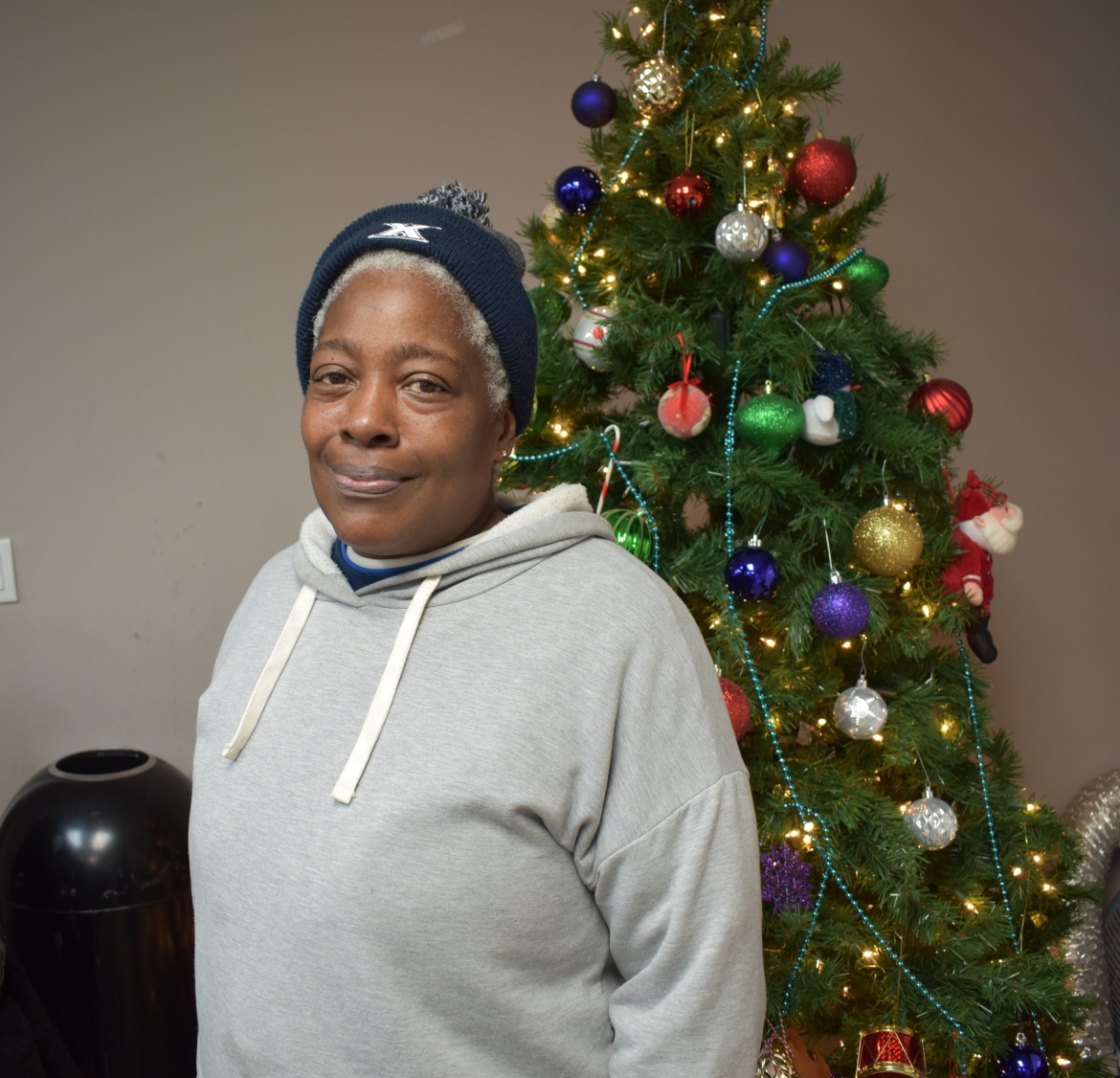
Stephanie
Stephanie has been involved with LEAP for three years, enjoying positive energy in this social recreational day program. Engaging in recovery sessions, arts and crafts, and her favorite, Friday bingo, Stephanie found a supportive community and belonging. LEAP is more than just a program; it's where Stephanie feels a sense of accomplishment and connection.
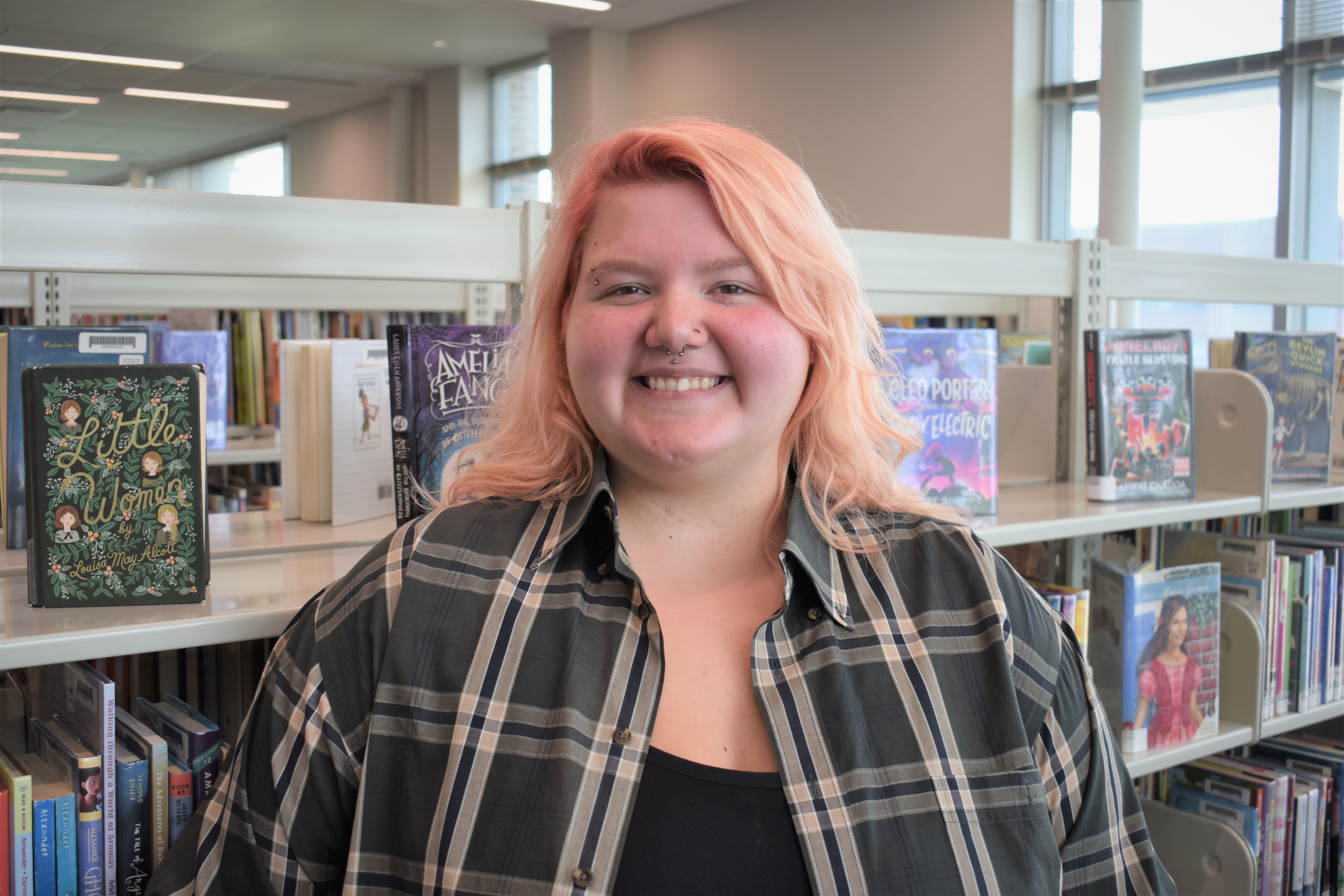
Ryley
Ryley's story began with her father's passing in high school. She attempted suicide once and had a plan for a second attempt. Her coach, who was also the school's guidance counselor, unexpectedly reached out to help her stay in school.
Ryley began doing schoolwork in the guidance office, where she met Parey, a Talbert House school-based therapist who shared her interests. Overcoming initial therapy hesitations, Ryley embarked on a healing journey with Parey, learning coping strategies like journaling.
Ryley used her love for books and music to connect with Parey, sharing journal entries in themed therapy sessions. Parey became her unwavering advocate and confidant.
Ryley credits Parey for providing a safe space and believing in her self-worth. Parey is proud of Ryley's transformation, emphasizing the importance of self-respect.
Reflecting on her journey, Ryley advises her younger self to persevere, as it truly gets better. Her goal is to attend college, become a teacher, and support youth facing similar challenges, advocating for mental health and offering hope and resilience. Ryley found her purpose – making a positive difference in others' lives, just as she did within herself.

Mark
Mark was diagnosed with early-onset bipolar disorder around the age of 13. After struggling to find the right prescription through high school and college, Mark continued to self-medicate with excessive alcohol and drug use. Feeling like he was at rock bottom, Mark checked himself into a psychiatric hospital and was connected to Talbert House.
“At Talbert House I was provided with a therapist and a psychiatrist, who worked with me to start assembling what I now consider to be my ‘mental health toolkit.’” Mark says, “With the help of my care team, I learned to manage my disorder and became successful in my personal, social, academic and professional lives.”
Now in recovery for over a decade Mark has realized his passion for mental health awareness and education. “I have a passion for helping people see that mental illnesses are treatable, and recovery is possible.”
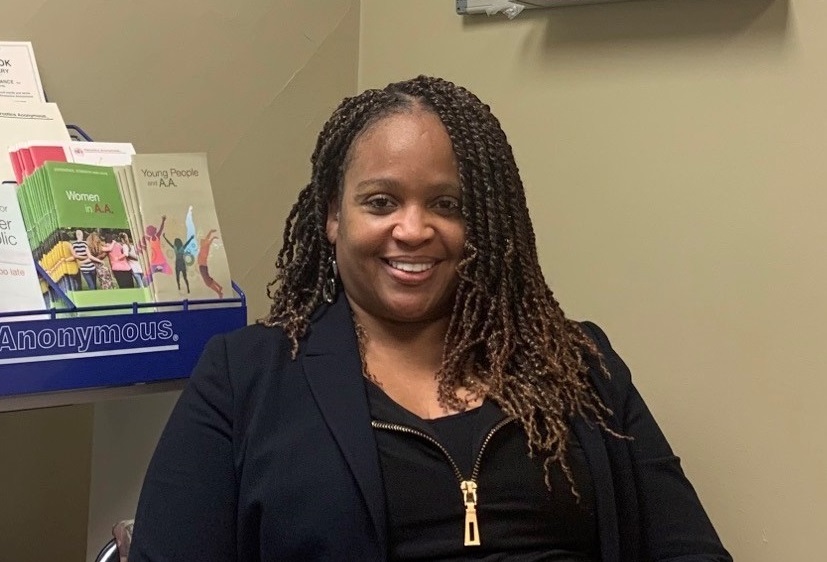
Pamela
As a young adult Pamela was using marijuana and other drugs as well as drinking heavily, leading to her developing a substance use disorder. After being in and out of the justice system Pamela entered the ADAPT program at Talbert House. “I knew that I was sick, I just didn’t know how to get well.”
After completing ADAPT Pamela has been in recovery ever since. Feeling reinvented, she wanted to learn about addiction and why she was so affected by this disease. At age 45, Pamela went back to school and obtained her CDCA.
To those still struggling with their substance use disorder Pamela says, “There’s no recovery without hope, no future, there’s no recompense without hope. You’ve got to fight for your recovery, just like you fought – and harder – for that drug.”
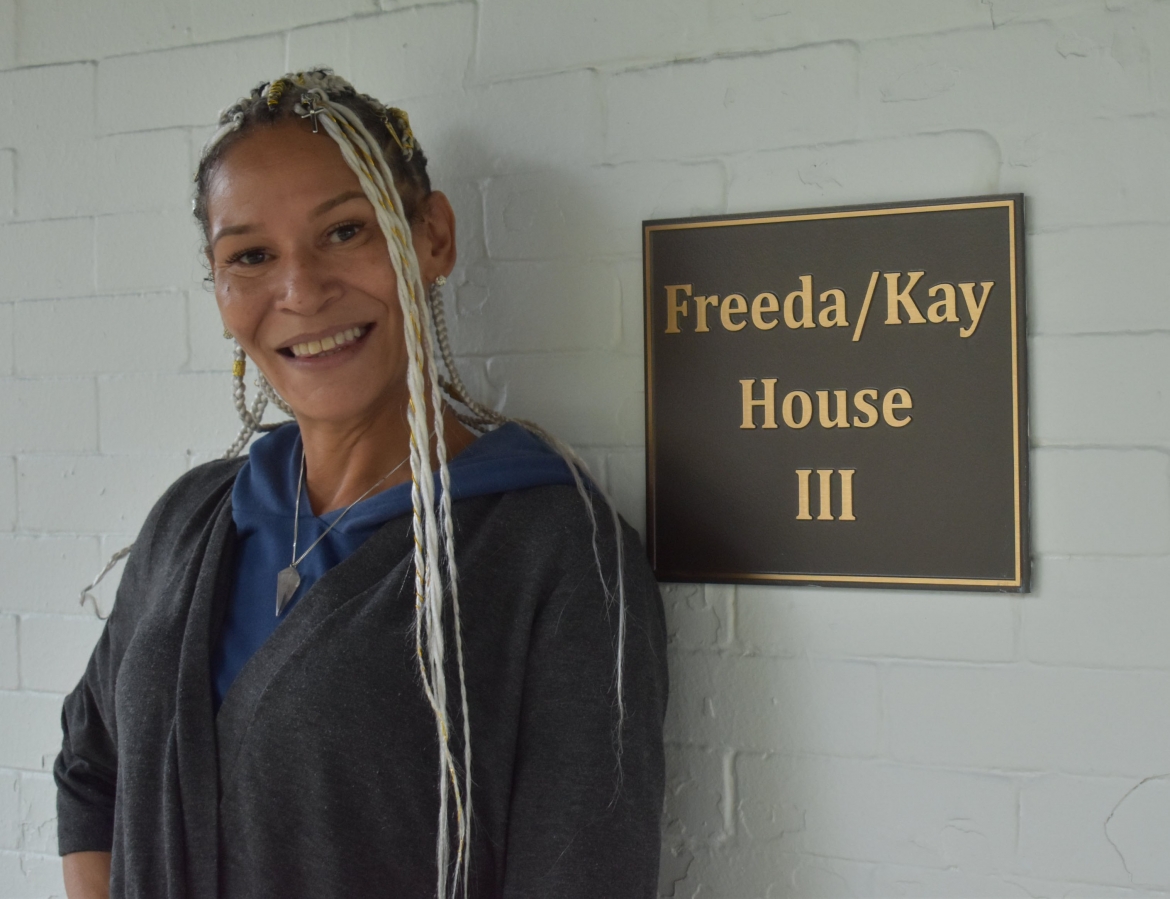
Barbara
Coming from a generation of Army veterans Barbara felt a duty to enlist as well. After serving in Iraq for 8 years, she returned home believing that everything was fine. Physically she felt healthy, but knowing what she knows now Barbara recalls that being close to the time she began struggling with her mental health.
Even while experiencing PTSD, anxiety and a diagnosis of Bipolar Disorder it took years for Barbara to face her mental health struggles. “It isn’t something to be ashamed of,” Barbara says, “I was in denial for a lot about mental health because of the stigma.”
After experiencing homelessness and mental health challenges forced her into isolation Barbara was referred to Freeda Kay III, a Talbert House permanent supportive housing program allowing women who experienced trauma to live independently with their children. Barbara says there is an “overflow of blessings” at Freeda Kay III. With her new support structure in place Barbara is now focusing on being a happy, healthy and productive adult. She recently enrolled in school for TV and Radio Broadcasting with a clear goal, “I want to be able to get on my feet and bring awareness to mental health issues.”
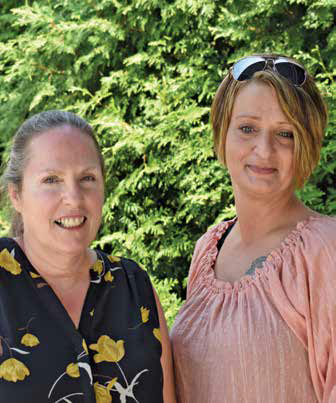
Rebecca
After years of substance use, Rebecca was in and out of the justice system and isolated from any support. Until she met Debbie Boeh.
Debbie, or “Ms. Deb” as she’s known by many of her clients, is a Peer Recovery Coach at Talbert House. Ms. Deb helped Rebecca prepare for life after her sentence in the Hamilton County Recovery Pod. Rebecca stayed in contact with Debbie, who helped her obtain housing, her driver’s license and birth certificate. Together they scheduled medical appointments and arranged transportation.
“What hasn’t Ms. Deb helped me with?” Rebecca says, “Ms. Deb has given me hope. I talk with her about life. She’s one of the people that believed in me when I didn’t believe in myself. She’s hasn’t judged. She’s stayed by me. She’s definitely a big part of my recovery.”
Rebecca has been in recovery for over 17 months and is focused on taking one day at a time. “Some days are better than others, but I work through them. It’s people like Ms. Deb who have faith in me that gives me a reason to keep on this path.” And she knows that she won’t be on that path alone.
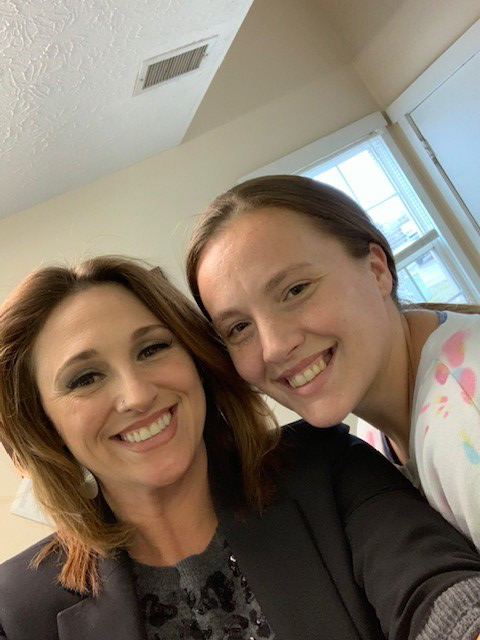
Kasie
Kasie was drug-free for most of her life but was introduced to heroin by a friend. She soon became addicted and her life began to spiral out of control. After years of living on rock bottom, her relationships with friends and family members were almost irreparable and recovery seemed impossible. She says, "Every day I fought a battle most people would never understand."
When Kasie came to Franklin Outpatient, she felt alone and afraid but was committed to her recovery. Through Medication Assisted Treatment, Kasie's life began to turn a corner. A pregnancy required that she stop using the medication but she continued talk therapy and stayed sober throughout the pregnancy.
Now over two years sober, Kasie has obtained her driver's license and has her own home. She has joint custody of her older daughter and full custody of the baby. She has rebuilt many relationships and has a very strong support system. Clinical Service Provider, Randee Tomasulo says, "Kasie has faced so much adversity and yet, she has maintained her sobriety. She has impressed me greatly.
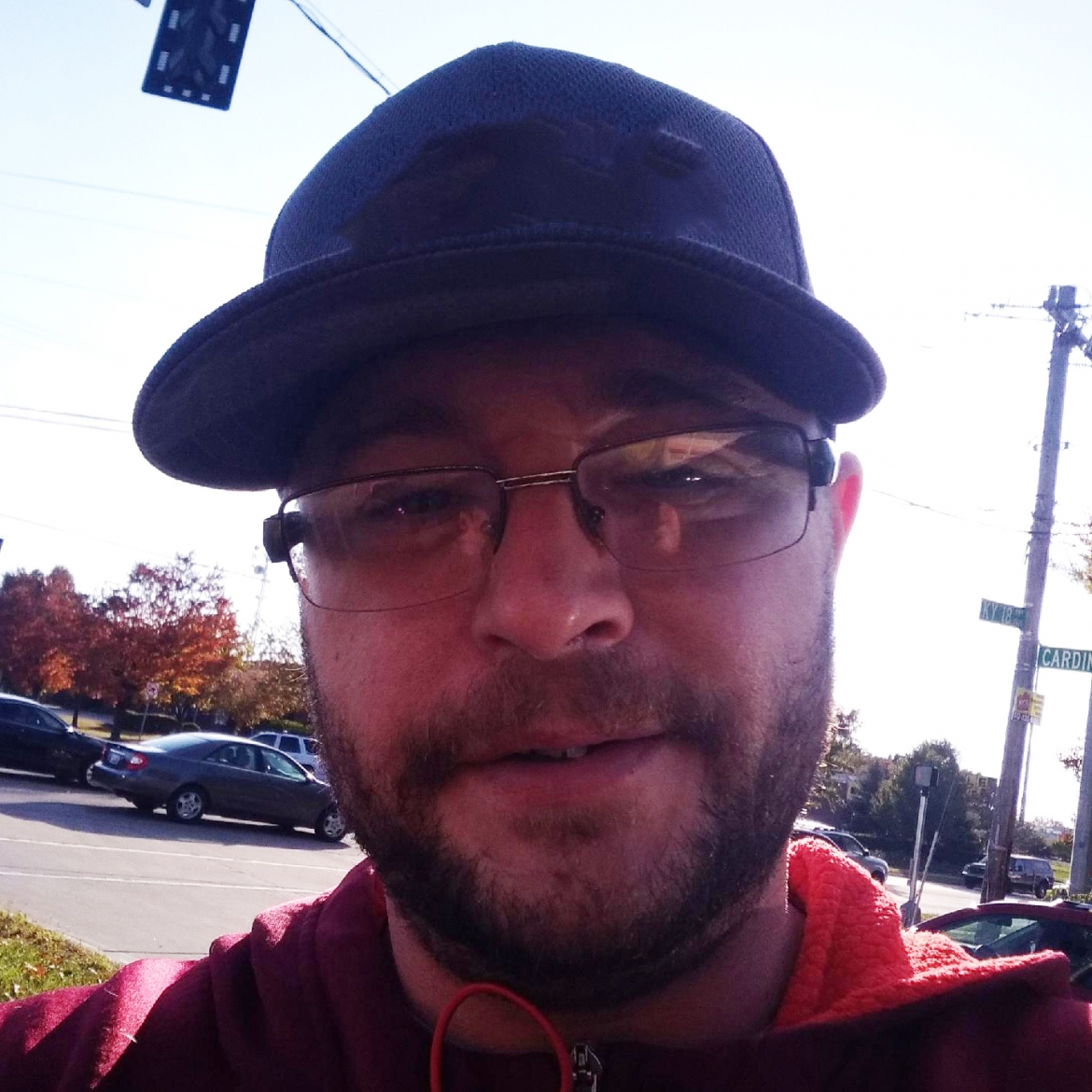
Adam
Adam served three tours in the United States Army. Expecting a joyous homecoming, he was met with depression, alcoholism and homelessness. After years of struggles, Adam and his emotional support dog, Aurora, entered Talbert House's Health Care for Homeless Veterans (HCHV) program to seek emergency shelter.
Adam's case manager helped him remove barriers to employment and secure a job, where he enjoys the new and dynamic work environment. Together, Adam and his case manager found an apartment in a beautiful and quiet neighborhood near several parks, where Adam and Aurora enjoy taking walks together.
Once homeless and hopeless, Adam and Aurora now live healthy, safe and productive lives, with a bright future ahead of them. Adam has maintained sobriety and remains connected to his Talbert House case manager for support.
"I came to Talbert House with a part-time job and struggled to maintain housing. My case manager picked me up and helped me improve these areas of my life, which helped my confidence and overall happiness."
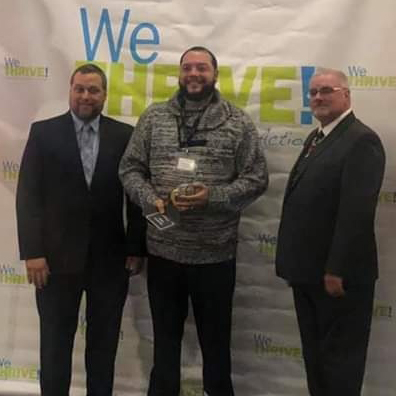
Demetrius
Like many fathers, Demetrius joined Talbert House's Fatherhood Project to be a more responsible, committed and nurturing father. Through classes, coaching and support meetings, Demetrius has not only developed a stronger connection with his own children, but he has become a father figure to many kids in need of a role model in the North College Hill community.
When Demetrius noticed that children in his neighborhood had to share bicycles, he wanted to lend a helping hand. He began collecting donations and fixing bicycles for kids in North College Hill. Demetrius was recently rewarded for his work with the 2019 WeTHRIVE! Champion for Health Equity Award.
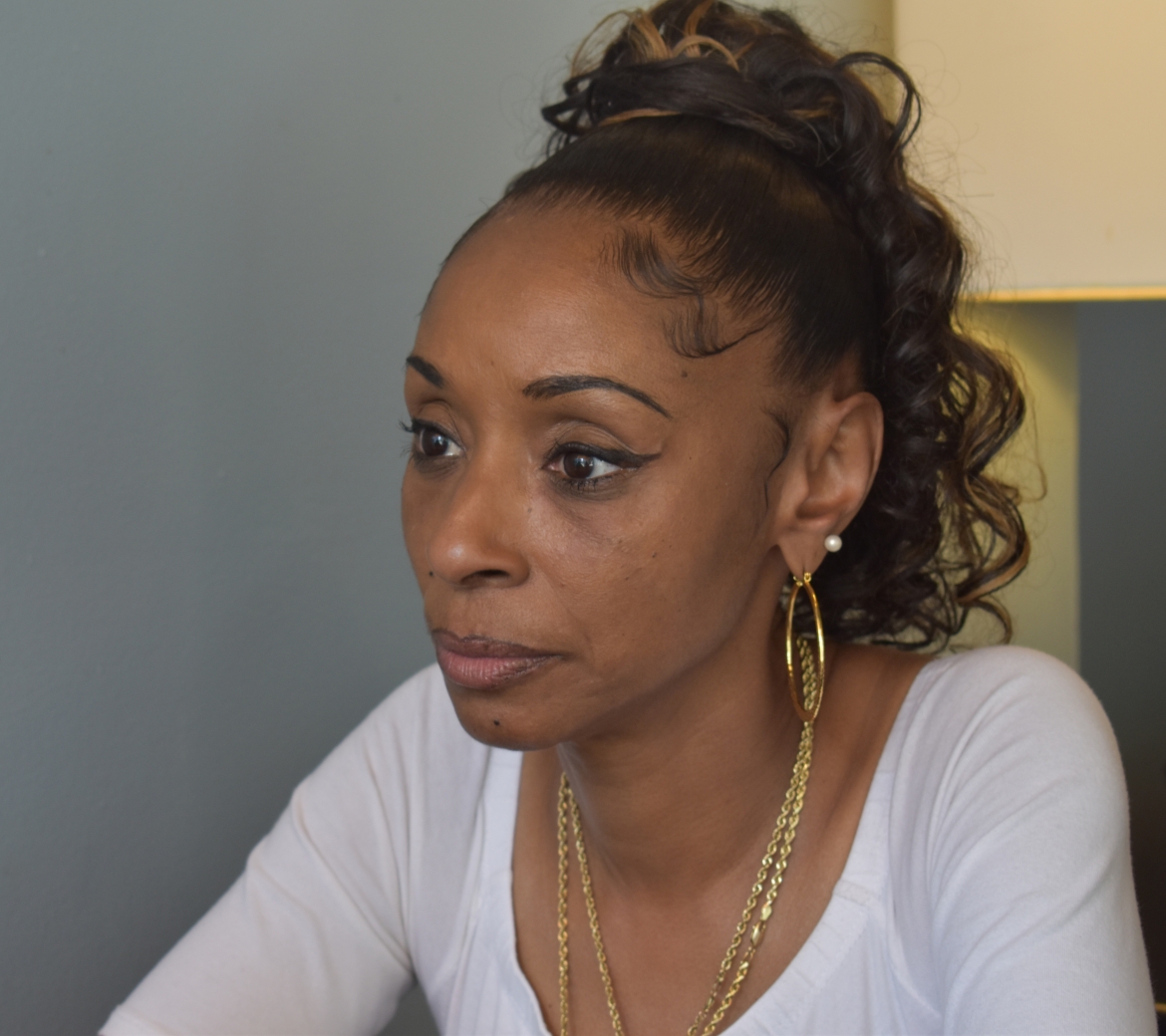
Stacy
Stacy struggled with addiction from the time she was a teenager. As a mother of four and grandmother of four, she had been in and out of treatment and felt hopeless. Then she was referred to Talbert House. With the help of her Housing Case Manager, Stacy moved in to a new apartment and began to turn things around.
Before long, she was hired as a Patient Care Technician at a partner agency and was recently named Patient Care Technician of the month. Sober since 2016, Stacy has rebuilt strong relationships with her family and feels blessed to have a second chance that not many get.
"My kids respect me now. They actually ask for my advice and that feels good. I have come so far."
Read Stacy's whole story in the 2019 Annual Report.
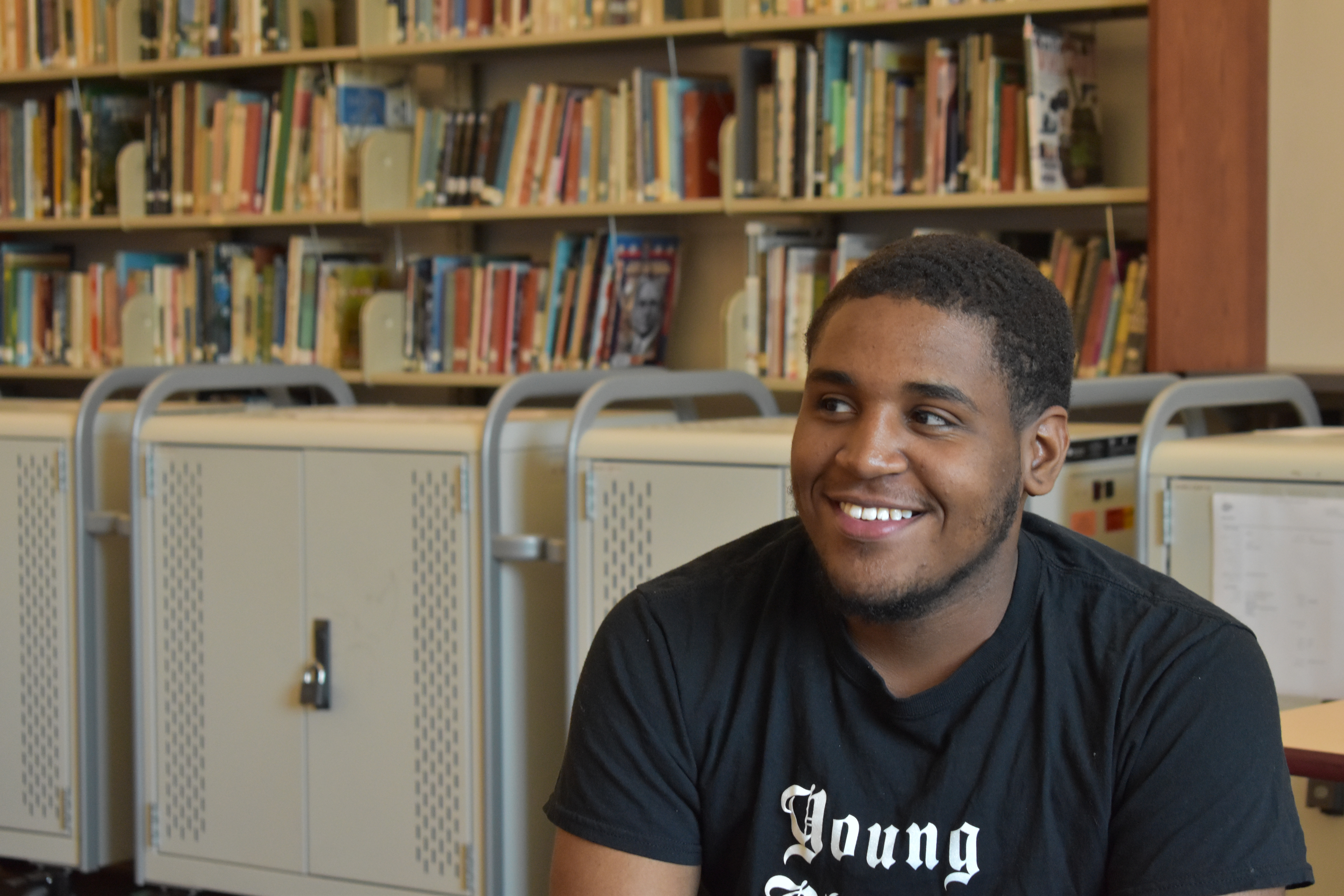
JuJuan
When JuJuan heard about the Comprehensive Case Management Employment Program (CCMEP) he didn't want to work - he wanted to have fun with his friends. Initially shy and anxious, his interest grew as he learned new work skills. With each new job placement, he gained new relationships and experiences with his co-workers and supervisors.
JuJuan applied the lessons he learned through CCMEP in school. He joined clubs to become more active at school and in the community and his hard work paid off. He graduated as the salutatorian of the Shroder Class of 2019. He accepted a full ride scholarship to The Ohio State University where he is studying Business.
"I made connections for my future that included my CCMEP coach, job site supervisors, co-workers and friends. CCMEP taught me to be true to yourself. Don't follow. Be a leader."

Shawn
For over half of his life, Shawn has struggled with addiction. In January 2015, he overdosed on heroin laced with fentanyl and was sentenced to ADAPT – the Hamilton County Drug Court program. ADAPT helped Shawn build a support team and repair relationships with his family. Shawn has been sober since May 2015, has been steadily employed and volunteers as a youth baseball coach.
"I feel really good today. Better than I ever thought I could feel. I had been awaiting the day I would die. Now I am awaiting growth and continued happiness."
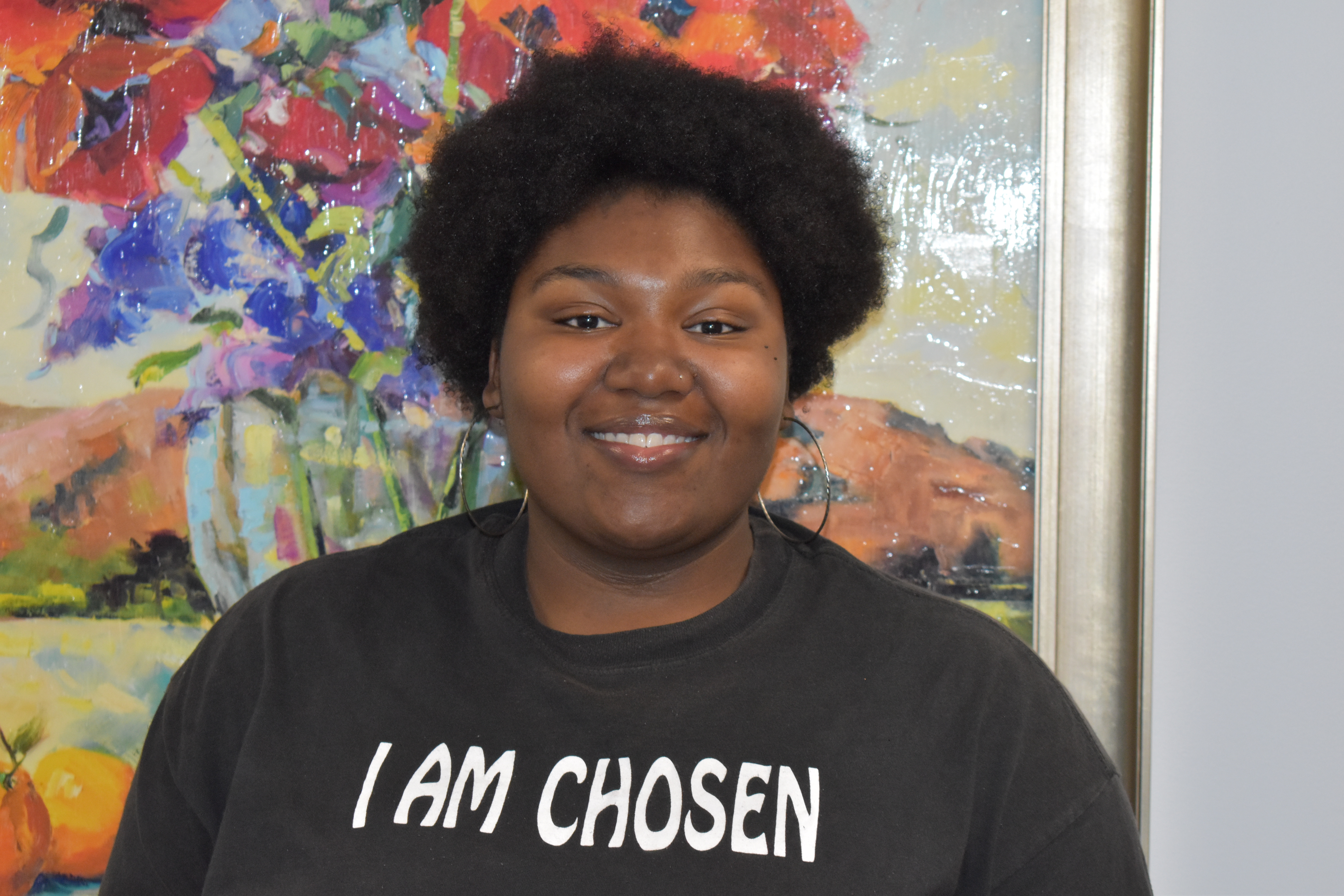
Paulisha
A new mom, Paulisha was introduced to Talbert House's Comprehensive Case Management Employment Program (CCMEP) by the Hamilton County Department of Job and Family Services. Her first work assignment was a clerical position. With the support of her Case Manager, she was given more work responsibilities, gained confidence and continued to take advantage of all that was offered through the program.
Balancing full time work and being a mom, she pursued a Medical Assistant degree through Great Oaks. After completing her courses, passing her exam and completing an externship, Paulisha accepted a position at Christ Hospital. "My Case Manager pushed me out of my comfort zone. Thanks to her, I was able to attend school, get a job and earn my driver's license, while raising two children. She guided me towards independence and self-sufficiency."
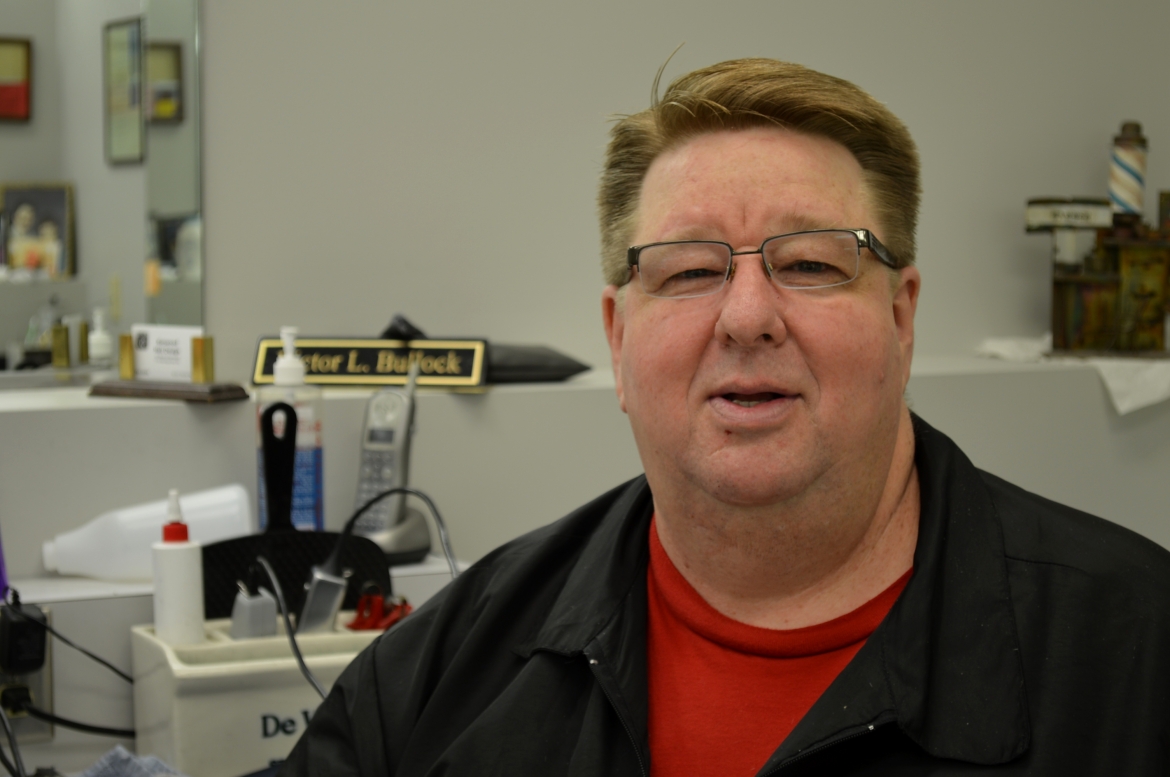
Victor
Victor was in and out of trouble from the time he was a kid. His struggles with addiction led him to jail and prison, resulting in a sentence to Talbert House's Turning Point Facility; a residential assessment, education, and treatment program for men convicted of alcohol or drug-related offenses. Victor has been sober since his stay at Turning Point nearly 17 years ago. He graduated college and stays active with support groups in the community to help others beat their addiction. He credits Judge Mattingly, the treatment team, and his family for his long-term recovery.
"It took 119 days of treatment to give me the tools that saved my life."
Rayshan
When Rayshan was nine he was referred to Talbert House by The Children’s Home of Cincinnati. He was homeless and having problems at school. Rayshan was enrolled in the agency’s Wraparound services and attended Camp Possible that first summer. He was a camper again the next year and then became a Counselor in Training (CIT). This will be his third summer at Camp Possible as a CIT. Rayshan is known to help with anything at camp including talking to campers or chaperoning field trips.
“Camp Possible is a bully free zone. It’s a place where everyone comes together, works together and learns.”
Rayshan’s Like Skills Coach at Talbert House describes him as incredibly grounded, and says he has made significant progress since coming to the agency. He will be a freshman in the fall, plays football, and is on the honor roll at his school. Rayshan is also involved in Talbert House’s Comprehensive Case Management Employment Program and will be referred to the Journey TIP (Transition to Independence Process) program to work on planning for his future.

Quinaja
Quinaja was referred to Talbert House’s Wraparound services in 2015. Growing up she attended several schools, making it hard to form connections. She struggled to adjust. With the guidance of the Wraparound team and her Life Skills Coach at Talbert House, Quinaja has made huge strides. She is set to begin her senior year in the fall. She is a cheerleader at her school and has thoughts of pursuing either cosmetology or culinary arts after graduation. Quinaja is also engaged in Journey TIP (Transition to Independence Process), which involves young adults in the planning of their own future by focusing on their individual strengths. Quinaja has helped with Talbert House’s Camp Possible for the past 3 years. As a Counselor in Training (CIT) she assists with the camp talent show and takes pride in being able to connect with the campers.
“I am closer in their age than the grownups. When I help make a difference for other campers, I feel like I have the power. The kids can listen to me and the adults can deal with other issues.”

Justin
When Justin’s wife passed away, he endured years of anger and grief. After an attempted overdose, he came to Talbert House for his anxiety and depression. Through his treatment at the Brown County Outpatient facility in Mt. Orab, Justin discovered his most helpful coping skill to manage his mental health. Art.
Case Manager, Carla Simpson, says, "When he is focused on his art, it helps him slow down his thoughts and reroute his anxiety."
In addition to taking his mind off of physical pains, anxiety, and the stresses of life, Justin uses art to lift the spirits of others. "I want to be able to help anybody that’s feeling down or lost. If I can brighten their day [with art] that’s something I want to do."
Justin became an award winning artist after entering several drawings into the Brown County Fair in 2017. Last fall, Justin submitted four drawings to the fair and received four blue ribbons and has plans to enter again in 2019.
Justin says that since coming to Talbert House, things have been better for him. "There’s people here that’ll listen to me and help me out the way I need to be helped. They listen to me when I have a problem. Everything’s a lot different now."
Camp Possible - Jill
Jill
Jill, her husband, and their children Austin, Juan, and Celia have had their lives changed by Camp Possible, a therapeutic-based summer program for children ages 6-13 who struggle with behavioral health issues. With the help of Camp Possible and its staff, Jill has seen improvement in her kids’ behavior and how they cope with their anxiety. She says she couldn’t be more proud of them and the work they have done with Talbert House.
"It has made a huge difference in our family, and I hope to be able to continue this progress for my kids and I hope that other families can benefit too."
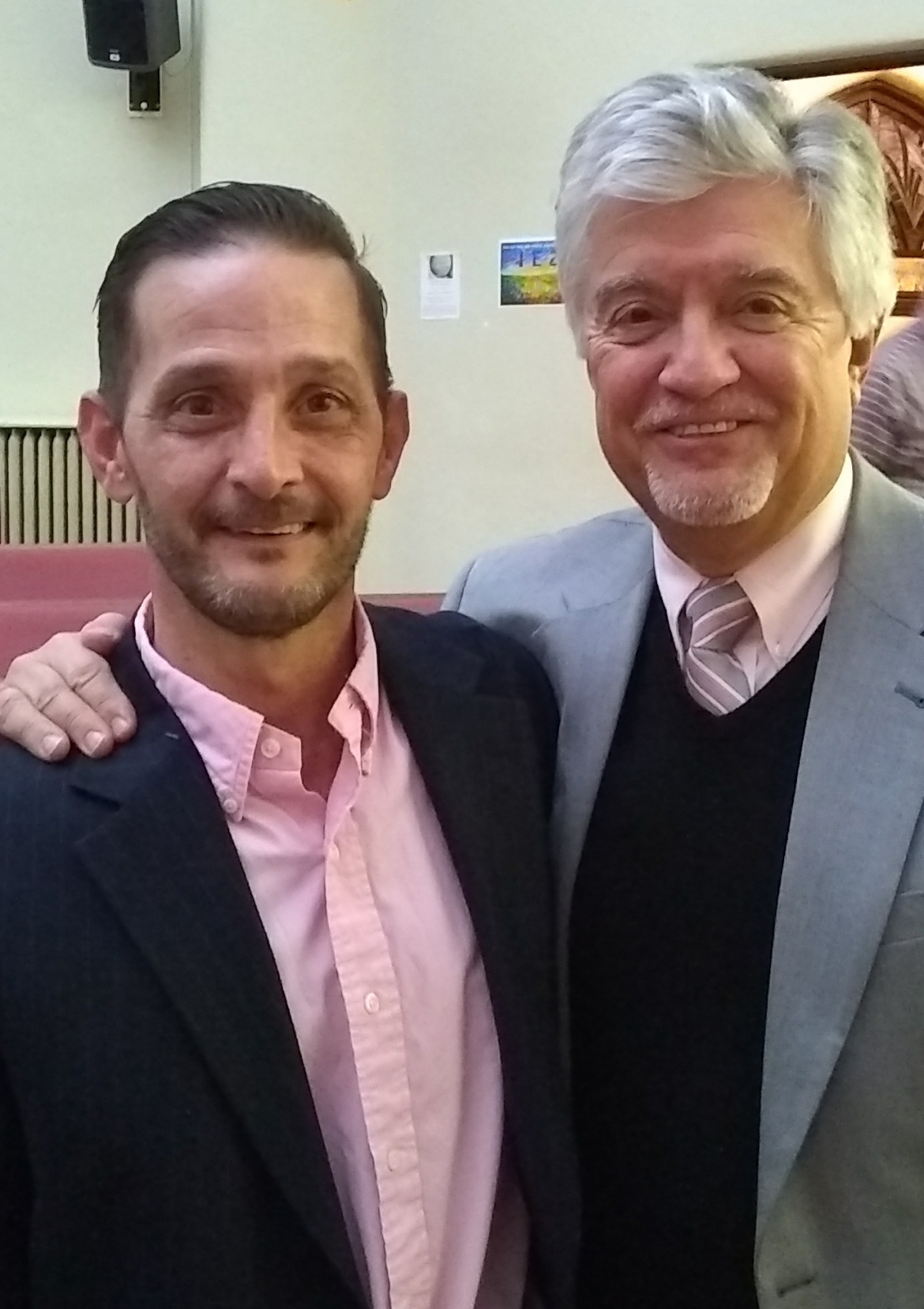
Chris
Chris’s path to addiction began with a Vicodin prescription for a shoulder and neck injury in his mid-20s. What followed was a decade of abusing drugs, losing jobs, and disappointing family. Legally, he incurred several misdemeanor charges. But a felony charge for possession of heroin in 2016 brought him face-to-face with his addiction. Judge Tim Rudduck and Ken Houghtaling at the Clinton County Drug Court referred Chris to Talbert House for treatment. According to Chris, this was a turning point. But recovery didn’t come easy. Chris relapsed in 2017, overdosed, and was revived with Narcan. Judge Rudduck and Talbert House were there.
"I was at the end this time. I knew I had to change or die. I found help and love from everyone involved with the drug court. They gave me hope and the desire to change."
Chris has been sober since February 14, 2017 and graduated from drug court in June 2018. He’s been employed for two years, has his family back, and credits the drug court, Talbert House, and sober living for his success.

Tan'yasha
Tan’yasha was referred to Talbert House more than a year ago after a felony conviction led her to Pathways, a halfway house program for women reentering the community. At Pathways, she participated in groups that helped her build a resume, enhance her interview skills and prepare for her future. Tan’yasha also utilized the resources offered at Pathways to connect with community organizations including the HELP Program of Cincinnati, which provided further support in continuing her education and preparing for the professional workforce.
Tan’yasha is now a licensed Community Health Worker for Health Care Access Now (HCAN), a Talbert House affiliate. She is proud of the work she does because she knows the impact employees at HCAN and Talbert House can have on a life.
"If there weren’t people doing this work, I wouldn’t be where I am today."
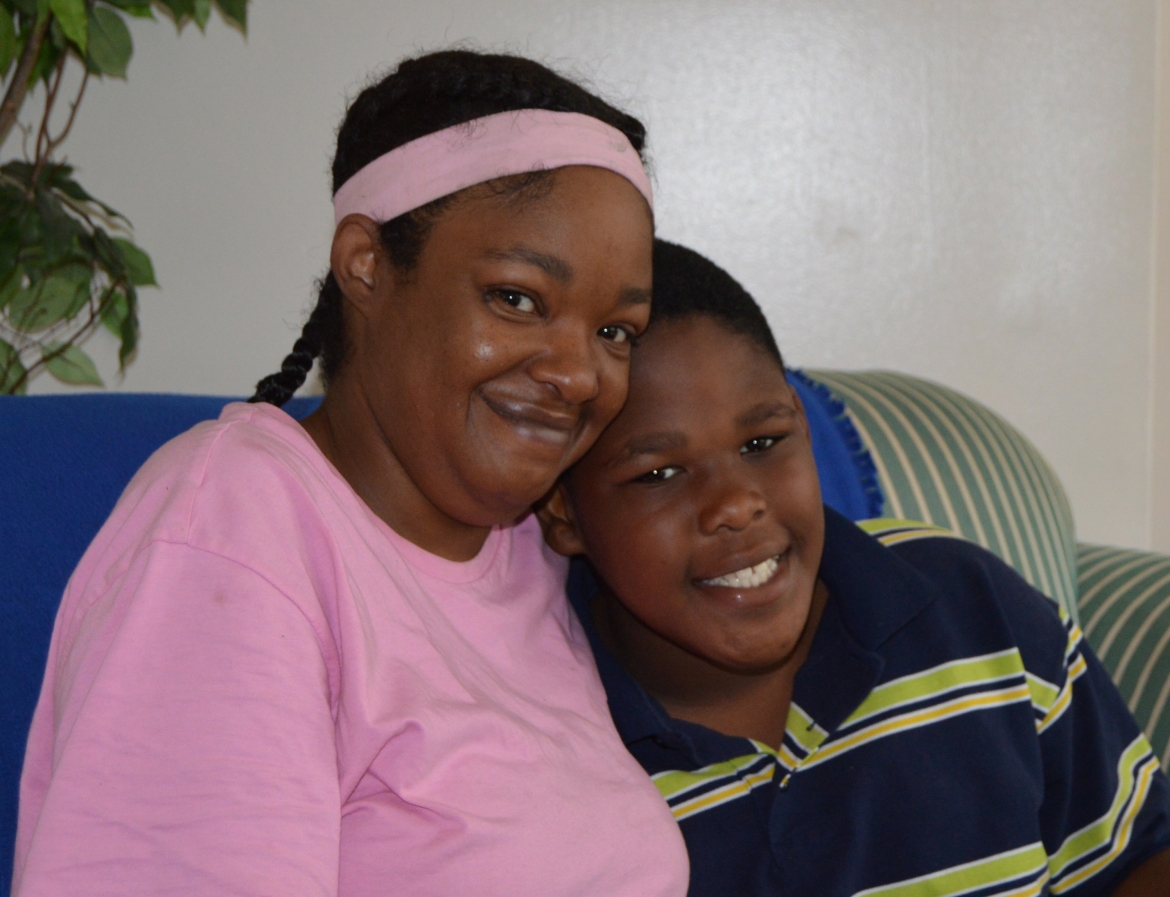
Shanta
Shanta lives with bi-polar disorder and has been a client of Talbert House's Case Management services for several years. Two years ago she fled an abusive relationship and as a result, she and her son became homeless. Shanta was encouraged by her case manager to apply for housing assistance to secure stable, safe, affordable housing.
Shanta and her eleven-year-old son are now residents of Freeda Kay II, a Talbert House permanent supportive housing program that allows women who have experienced trauma to live independently with their children. She loves their neighborhood and the family atmosphere of their building. Shanta says the other families at Freeda Kay II have been a support group for both her and her son. Surrounded by a caring staff and neighbors, she is thankful to call Freeda Kay II home.
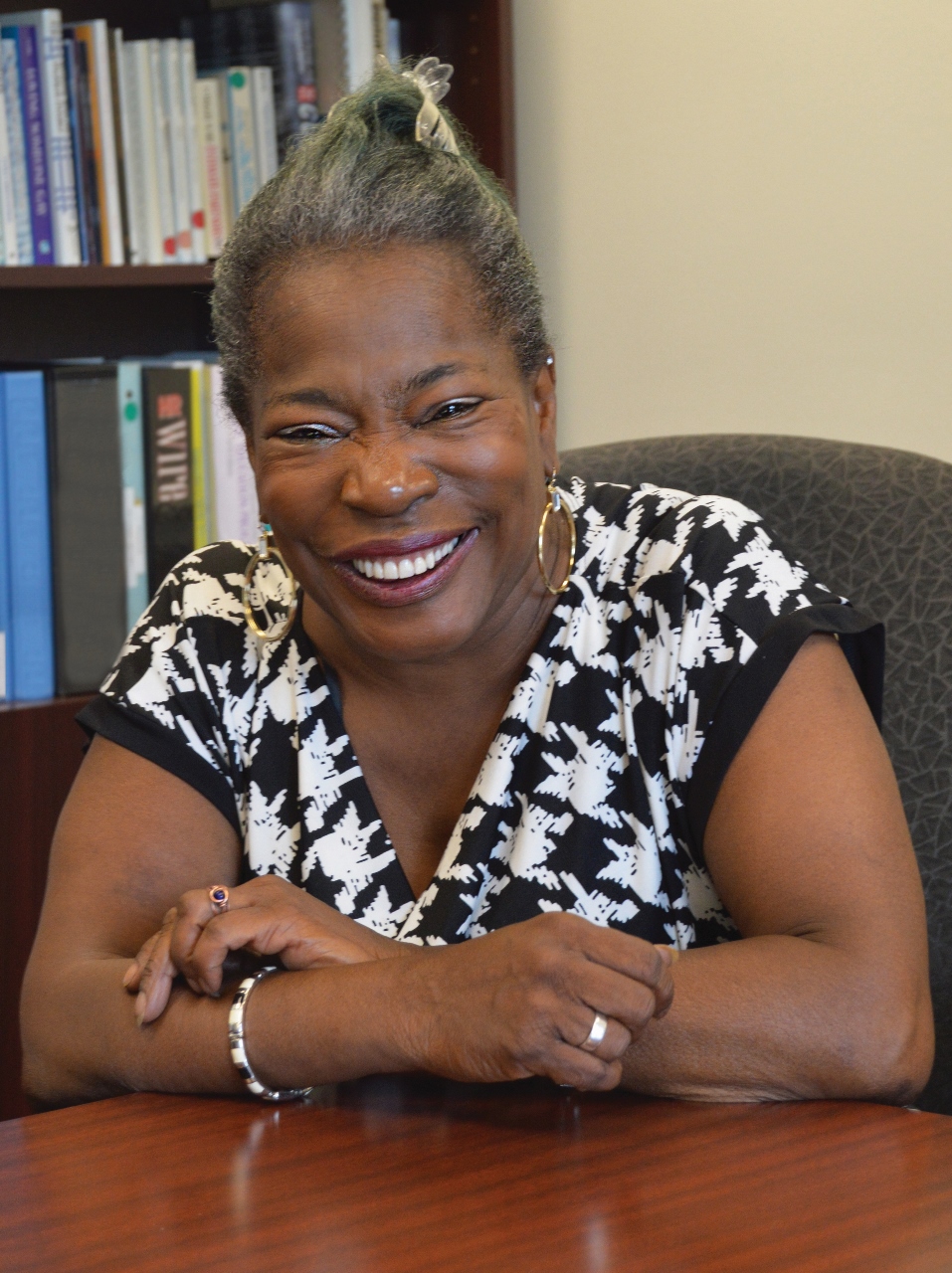
Mary Kay
When Mary Kay was young, her Grandma told her she was special and her mom always gave her the "extra vitamin". She was hospitalized several times through her youth and adult years until making her way to Talbert House.
Over the years, Mary Kay learned more about her diagnosis and is living life with schizophrenia and bipolar disorder. At Talbert House she found answers and explanations, and she found a family with LEAP (Living Enhancement Activities Program), a social recreational day program for severely mentally ill adults.
"Talbert House has been an awakening. Now I wonder, where have I been all my life?"
Read Mary Kay’s full story in the 2018 Annual Report
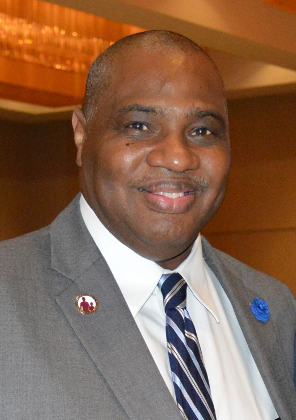
Robert
Robert came to Talbert House in 2009 through the Fatherhood Project. At the time he was in the early days of sobriety, unemployed, and had a strained relationship with his children. Then, he graduated from the Nurturing Fathers class, started working, and received help with managing child support.
Today, Robert has been employed and sober for nine years and is much more involved in the lives of his seven children and his grandchildren. He has remained active with the Fatherhood Project, attending graduations and supporting fathers currently taking classes. This year, Robert was named one of Talbert House’s Fathers of the Year at the 2018 Fatherhood Celebration Luncheon.

Amberly
Amberly is a young mother that has struggled with addiction since she was a teenager. After being diagnosed as bipolar with an eating disorder at age 13, the years that followed saw her struggling to find stability.
When Amberly learned she was pregnant, she got sober and stayed sober for two years. After relapsing, she struggled for another four years until an OVI (Operating a Vehicle Impaired) charge led her to Talbert House.
Now, she is taking responsibility for her actions and giving back. She has obtained her CDCA (Chemical Dependency Counselor Assistant) certification, started her first full time job, and enrolled in college.
Read Amberly’s full story in the 2018 Annual Report.
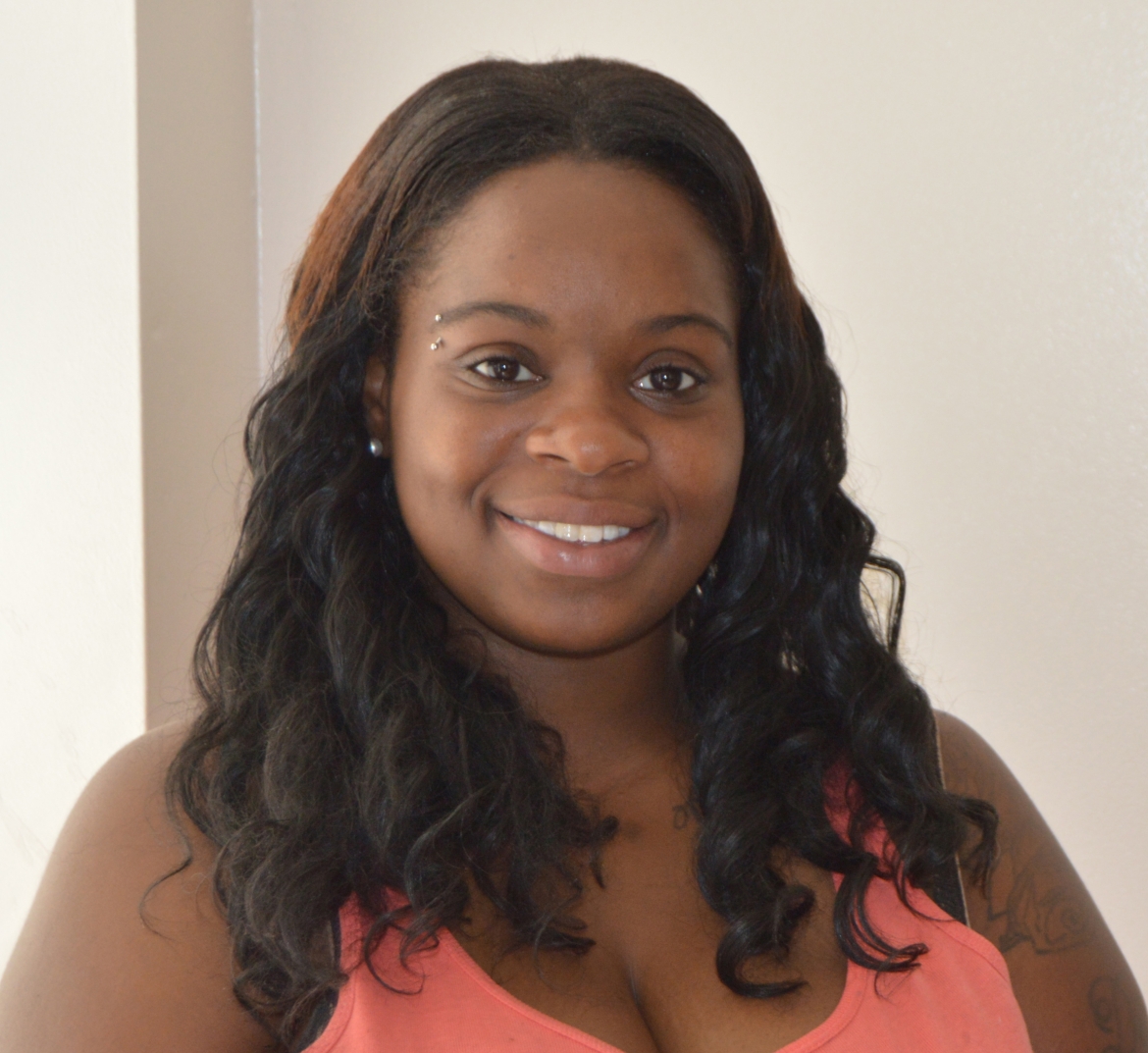
Jessica
When Jessica was first referred to Talbert House, she was a mother of three with her fourth on the way. She had been homeless for several months after fleeing an abusive relationship. Jessica found her way to Freeda Kay II, permanent supportive housing that allows women who have experienced trauma to live safely and independently with their children.
Jessica likes that her four little ones have others to play with in a safe area and in a secure building.
"I have all positive things to say. It’s a very good place to raise your children."
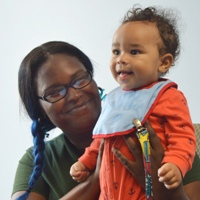
Nneka
When Nneka was introduced to Talbert House, she was a young mother-to-be receiving cash assistance. A referral from the Hamilton County Department of Job and Family Services was Nneka’s first step out of poverty. Her journey began to take shape when she was teamed with Ashley Tallent, a case manager who would help her find employment. Ashley began by identifying Nneka’s untapped potential.
Nneka’s pursuit of a career began at Easley Blessed, a thriving photography business where she developed a wide range of transferable skills including photography, video, and editing. The future is now very bright for Nneka. She plans to go back to school while working part-time with Easley Blessed. She and her son are thriving.
"They have shown me it is harder to keep things to myself and struggle on my own [than to ask for help]."
Read Nneka's whole story in the 2017 Annual Report.
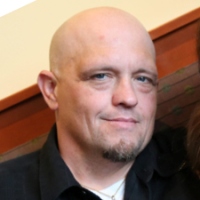
Tim
Tim is a single dad, working part-time and in recovery from a 10-year addiction to opiates. Tim started drinking around the age of 16. His addiction progressed and after an injury, he was introduced to painkillers and later heroin.
A variety of convictions led him to Talbert House's Spring Grove Center, a halfway house for men. There Tim found a three-year period of recovery. Then he relapsed, overdosing twice in 2016. Talbert House staff saved him in the parking lot by using Narcan.
After another stay at Spring Grove Center, he decided to take advantage of all resources available to him, including traditional therapy along with the medication assisted treatment Vivitrol. Tim wants others to know that opiate addiction is something you can overcome. He is giving back by offering hope to others who are struggling with their addition.
Read Tim's whole story in the 2017 Annual Report.

Steve
When you meet Steve, he is the picture of health: strong, fit, younger-looking than his 57 years. He has the kind of smile that lights up a room. And yet for years, Steve has struggled with an addiction that’s been difficult to shake, but it’s also taken him on a journey for which he’s surprisingly grateful.
Steve’s path to addiction started early. At 13, he experimented with marijuana and snuck beer from his family’s refrigerator. By high school, he’d progressed to harder drugs and became addicted. When he couldn’t support his habit, Steve resorted to crime and eventually landed in jail. After prison, he made his way to Spring Grove, a Talbert House re-entry program. “My life came together at Spring Grove,” Steve says. Steve successfully completed the program, got off parole, lived with his family and had a job.
“Talbert House gave me new tools, and I found out I could look at life differently.”
Read Steve's whole story in the 2016 Annual Report.

Heather
Heather, a student a Norwood Middle School, initially signed up for Teens Empowering Community Change (TECC) because she knew the job promoted leadership. She and her teammates were asked to identify issues facing Norwood teens and to create an action plan for how to help. By doing so, the club members and their fellow students can build resilience, a crucial skill that can help them bounce back even during tough times. It's a skill some experts believe may be the missing link needed to prevent substance use.
From Heather's perspective, TECC has been a huge success. "We're actually doing some good in the community. My mom is ecstatic that I'm in the program. She knows I'm doing some good."
Read Heather's whole story in the 2016 Annual Report.
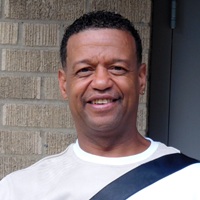
Robert
Robert had addiction issues coupled with other significant challenges in his life. While visiting family in Cincinnati, Robert made the decision to get into an unknown car containing illegal narcotics and was arrested. He was now on the brink of losing everything with the likelihood he would be sent to prison.
Robert was sentenced to Talbert House for treatment. He successfully completed the ADAPT for Men program, learned the life skills he needed, and now finds great pleasure in saying he is clean and sober and able to make good decisions for himself. In addition to a successful reentry, Robert now is employed by Talbert House as a resident manager at Parkway Apartments. He enjoys his work and is grateful to help others go through a similar journey toward recovery.
"Were it not for Talbert House, I would be living on the street or in prison. I am grateful for the help I received to once again become part of the community."
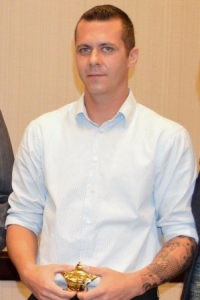
Chuck
Chuck was introduced to pain pills at the age of 12, by doctors, to help with his multiple surgeries for a disease that runs in his family. He was lucky to graduate high school before addiction started taking over his life.
At age 18, he had no worries about consequences of abusing prescription pills or getting caught by his mother, so his addiction started taking off. He became chemically dependent and, as pain killers were hard to find, was introduced to heroin at the age of 24. By 26 he started injecting heroin and was homeless by 29. Chuck was soon after arrested for charges of possession and drug abuse instruments in April 2015.
"I was lucky enough to walk into Judge Burke’s courtroom, accepted into the ADAPT for Men program, and introduced to recovery. I started learning the tools to turn my life around."
Chuck was released from the inpatient program in September 2015 and is continuing his recovery through Talbert House’s outpatient services. He is now proudly employed and advancing his way up through management.
"Thanks to the tools I learned through the Hamilton County Drug Court programs, I now am 17 months clean and my life is continually getting better."
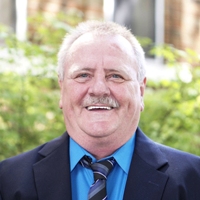
Jim
It was 1974 and Jim had just spend a year in the federal prison. The circumstances that led to his incarceration could describe so many other young men in the prison system, both then and now. His father died at an early age, leaving him without any male supervision. Eventually he settled into a life of using and dealing heroin, ultimately leading to his arrest.
After his release from prison, the staff at Talbert House created an environment to help Jim and the other men in the house begin to change their lives.
"I was just getting my head together when I came out of prison, but I didn't have any stability. I didn't really have a home to go to so Talbert House became my home. I could test the water and my freedom there, knowing I always had the safety net of my 'new family' at Talbert House."
After Jim's six-month stay at the halfway house, he left with a commitment to living differently. He started a new career as an executive recruiter and, even while still on federal parole, gained custody of his four-year-old daughter. He was determined to not let himself, his daughter, and the courts down. Now he has a successful business and a growing family.
"If I hadn't had that halfway house, I think I would have gone back to drugs and I'd be back in prison."
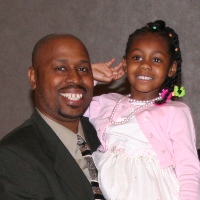
Antoin
Antoin came to the Talbert House Fatherhood Project in July 2007 and enrolled in the Nurturing Fathers class. He wanted to learn how to become a great father for his son and newborn daughter.
Antoin gained parenting skills and learned about child development. The program has also assisted him in obtaining permanent housing and employment. Through classes and support, he worked to strengthen his relationship with his children and establish visitation with his daughter.
When he learned that his daughter and her mother were moving out of state, he received help from Talbert House Legal Services to set up visitation rights through a Distance Agreement. When he continued to encounter issues with cancelled visits, Antoin worked with legal services along with his fatherhood coach.
In 2011, Antoin was awarded full custody of his daughter. He maintains a strong, nurturing and loving relationship with both his daughter and son. "I promised my children, they would always know that I am there for them and in turn, they are teaching me more than I am supposed to teach them...I'm still growing" says Antoin.
Antoin was recently honored, along with Honorable John J. Gilligan and Honorable Nathaniel R. Jones, as Father of the Year at the 4th Annual Fatherhood Celebration Luncheon.
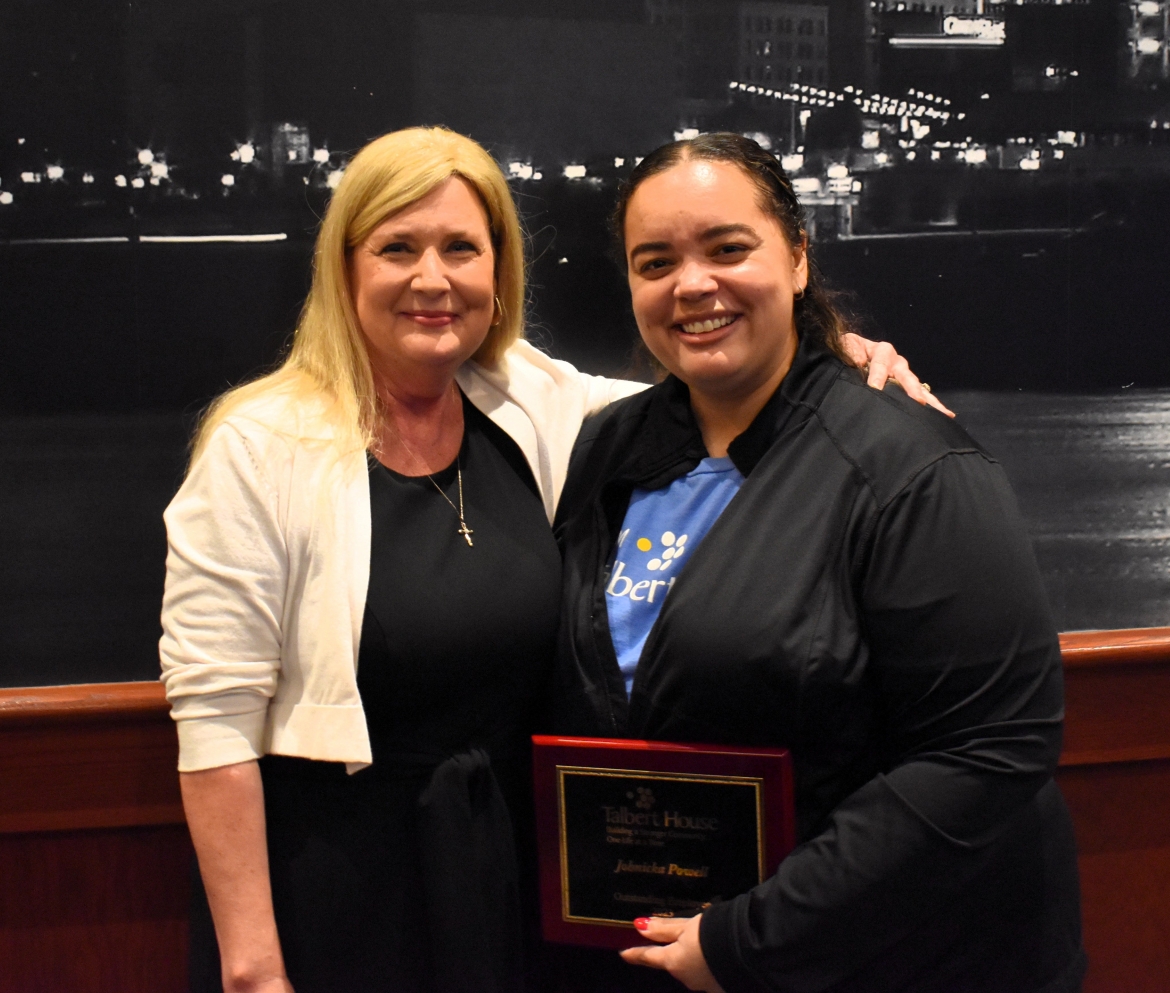
Johnicka
Meet Johnicka, an Outstanding Employee. hired as a payroll specialist 5 years ago, Johnicka'sjourney at Talbert House has been nothing short of inspiring. Promoted to Supervisor in 2023, Johnicka took charge with enthusiasm. From mastering system setups to handling IRS appeals, she's a problem-solving pro! Plus, her dedication to customer service and teamwork hasn't gone unnoticed.